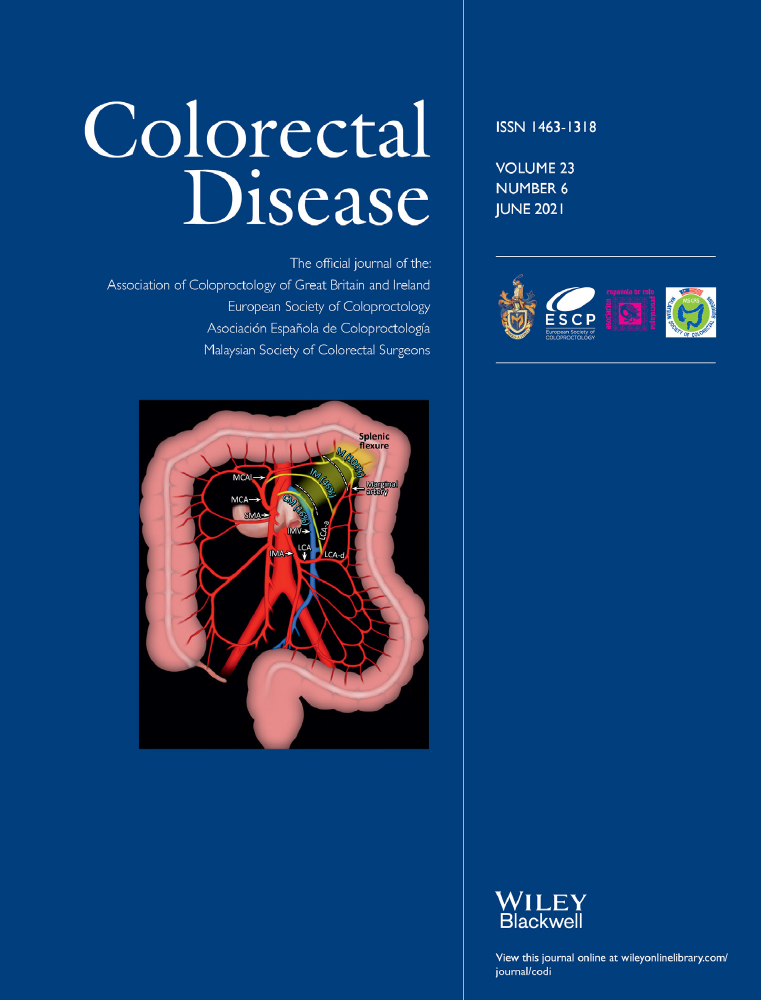Oncological outcomes after complete mesocolic excision in right-sided colon cancer: a population-based study
Funding information
Financial support was provided through the regional agreement on medical training and clinical research (ALF) between the Stockholm County Council and Karolinska Institute, and by the Stockholm Cancer Society. The MDT workshops at the Karolinska University Hospital were financed and supported by Medtronic Minimally Invasive Therapies (formerly Covidien).
Abstract
Aim
Complete mesocolic excision (CME) has been proposed as the preferred surgical technique for resection of colon cancer. This prospective cohort study evaluates the effect of CME surgery on colon cancer mortality after right-sided hemicolectomy on a population level.
Methods
Data from the Swedish Colorectal Cancer Registry and the Cause of Death Registry on all patients treated with elective right-sided hemicolectomy for colon cancer Stages I–III in the Stockholm County 2008–2012 were analysed. Adherence to principles of CME surgery was determined by structured analysis of anonymized surgical reports regarding the presence of five essential features. The exposure to CME was graded as group 0 (not exposed to CME), group 1 (intermediate) and group 2 (exposed to CME).
Results
In total, 1171 patients were analysed with 234 (20.0%) patients in CME group 0, 453 (38.7%) patients in CME group 1 and 484 (41.3%) in CME group 2. The 5-year colon cancer mortality was 20.2% in CME group 0, 13.9% in CME group 1 and 13.1% in CME group 2 (P = 0.026). The adjusted hazard ratio for colon cancer mortality was 0.61 (95% CI 0.42–0.91; P = 0.014) for CME group 1 and 0.52 (95% CI 0.35–0.77; P = 0.001) for CME group 2.
Discussion
The presence of predefined CME features in surgical reports was related to a graded benefit on cancer-specific mortality after right-sided hemicolectomy for colon cancer Stages I–III.
CONFLICT OF INTERESTS
None.
Open Research
DATA AVAILABILITY STATEMENT
The data that support the findings of this study are available on request from the corresponding author. The data are not publicly available due to privacy or ethical restrictions.




